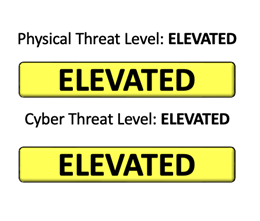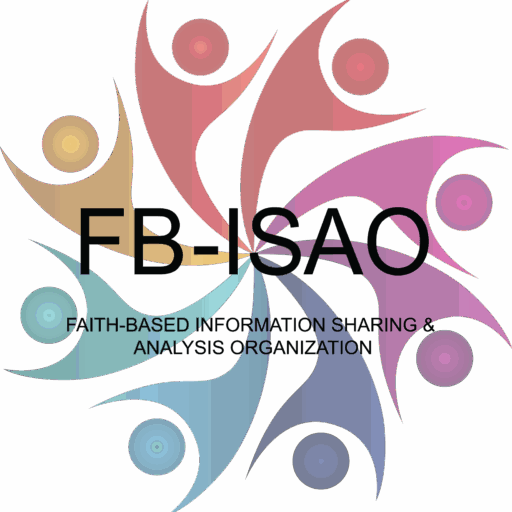Faith-Based Security Headlines
These updates are shared to help raise the situational awareness of Faith-Based organizations to best defend against and mitigate the impacts from all-hazards threats including physical security, cybersecurity, and natural disasters.
New Podcast – Information Sharing, Cybersecurity Politics, Threats, and More!
The Gate 15 Interview will be released on all the usual channels later today. Catch this month’s special crossover episode now via the Cybersecurity Advisors Network post and on YouTube!
Gate 15‘s Andy Jabbour joins us on this episode of CyAN’s Secure-in-Mind series, as we discuss a wide variety of topics. We cover information and intelligence sharing, geopolitics, US and European cybersecurity capabilities, information security investment, collective cyberdefence, adversaries, threats, and some nifty travel tips.
Information on other Gate 15 podcasts can be found at Podcasts
NJ woman admits to stealing $350,000 from synagogue
Stacy Margaritondo, a 52-year old woman from Scotch Plains, New Jersey, admitted to embezzling around $350,000 from a local synagogue. Margaritondo who had worked there since 2010 and became office manager and bookkeeper in 2020, misused her position by issuing unauthorized checks to herself and manipulating financial records to hide the theft. She also fraudulently obtained short-term loans using the synagogue’s name. Margaritondo faces up to 20 years in prison and a fine of up to $250,000. Her sentencing is scheduled for July 22, 2025.
Related articles: County Woman Admits Embezzling Hundreds Of Thousands Of Dollars From Synagogue
Analyst Comments: Fraud and financial mismanagement continues to be a concern for houses of worship. Internal fraud is estimated to cost houses of worship $63 million a year. Previous reports have estimated that “as much as 95% of fraud within churches goes undetected or unreported.” It is important to train and educate staff and volunteers in financial best practices. Faith-Based institutions should ensure they have clear, documented policies for financial transactions, regular audits, and checks and balances to minimize the risk of fraud.
CISA- Insider Threat Mitigation
Deadly attack on mosque in Niger leaves 44 dead, 13 injured
On March 21, 2025, a deadly attack on a mosque in the village of Fonbita, southwestern Niger, resulted in 44 deaths and 13 injuries. Militants, believed to be from the Islamic State in the Greater Sahara (ISGS), stormed the mosque during prayers. Four of the injured are in critical condition. The Nigerien government condemned the attack as a “cowardly and inhumane act” and has vowed to increase efforts against terrorism. A 72-hour national mourning period has been declared, with flag at half-mast. The government has pledged a thorough investigation and committed to continuing its fight against extremism.
Analyst Comments: Faith-based establishments, such as mosques, are frequently symbolic targets in conflict zones. Attacks on these sacred spaces are especially despicable as they desecrate places intended for peace, contemplation, and community. These acts seek to spread fear, disrupt societal unity, and erode religious freedom. Organizations that engage in international mission trips, particularly those within conflict zones are encouraged to review State Department Travel Advisories and resources through the Overseas Security Advisory Council (OSAC). As always, Faith-Based ISAO’s website provides resources in the Resource Library.
Trump Administration Begins Shifting Cyberattack Response to States
The Trump administration has begun shifting the responsibility of responding to cyberattacks from the federal government to individual states. As part of this strategy, the administration is encouraging states to bolster their cybersecurity measures and handle attacks within their jurisdictions. This transition aims to increase the resilience of state and local governments against cyber threats. While federal agencies like the Department of Homeland Security will still provide support, this new approach emphasizes a more localized and proactive response to growing cyber risks, allowing states to better address emerging threats independently.
Analyst Comments: By shifting more responsibility to states, the federal government aims to foster greater accountability at the local level. This move encourages states to invest more in their cybersecurity infrastructure and take a more proactive approach to preventing and addressing cyber threats. However, there may be a lack of necessary resources, expertise, or funding to effectively manage these responsibilities. The increasing frequency and complexity of cyberattacks highlight the urgent need for both state and federal governments to adapt swiftly. While FB-ISAO still encourages organizations to maintain a relationship with CISA and FBI officials, it would be advisable to also ensure relationships are established with local and state government and law enforcement partners during steady state operations to facilitate a smooth incident response if ever required.
Get the Daily Awareness Post Delivered to your Email!
More Faith-Based Stories
DOJ: Oklahoma Man Pleads Guilty to Attempting to Destroy Satanic Temple in Salem with a Pipe Bomb
TN: MPD: Man threatens to ‘butcher’ churchgoers with a machete
CT: 12-year-old accused of hate crime after 2 Muslim students attacked at Connecticut school
MI: Man recruited 12-year-old to paint racist graffiti on Black church in Michigan, feds say
2 teens charged with vandalizing church and bus in Indianapolis
Hate flyers found in Coeur d’Alene
Montgomery County authorities seek additional victims in church volunteer child sex assault case
Former pastor of Jimmy Carter’s Baptist church arrested for child solicitation crimes
House members demand answers from Trump administration on freeze of nonprofit security grants
Concerns about espionage rise as Trump and Musk fire thousands of federal workers
3 killed, over a dozen injured in a shooting at a park in New Mexico, police say
U-Va. releases reports on 2022 shooting, but many details remain shielded
April 5th – Our next nationwide date of mobilization – we are calling to Remove, Reverse, Reclaim
Individuals Target Tesla Vehicles and Dealerships Nationwide with Arson, Gunfire, and Vandalism
More Security-focused Content






